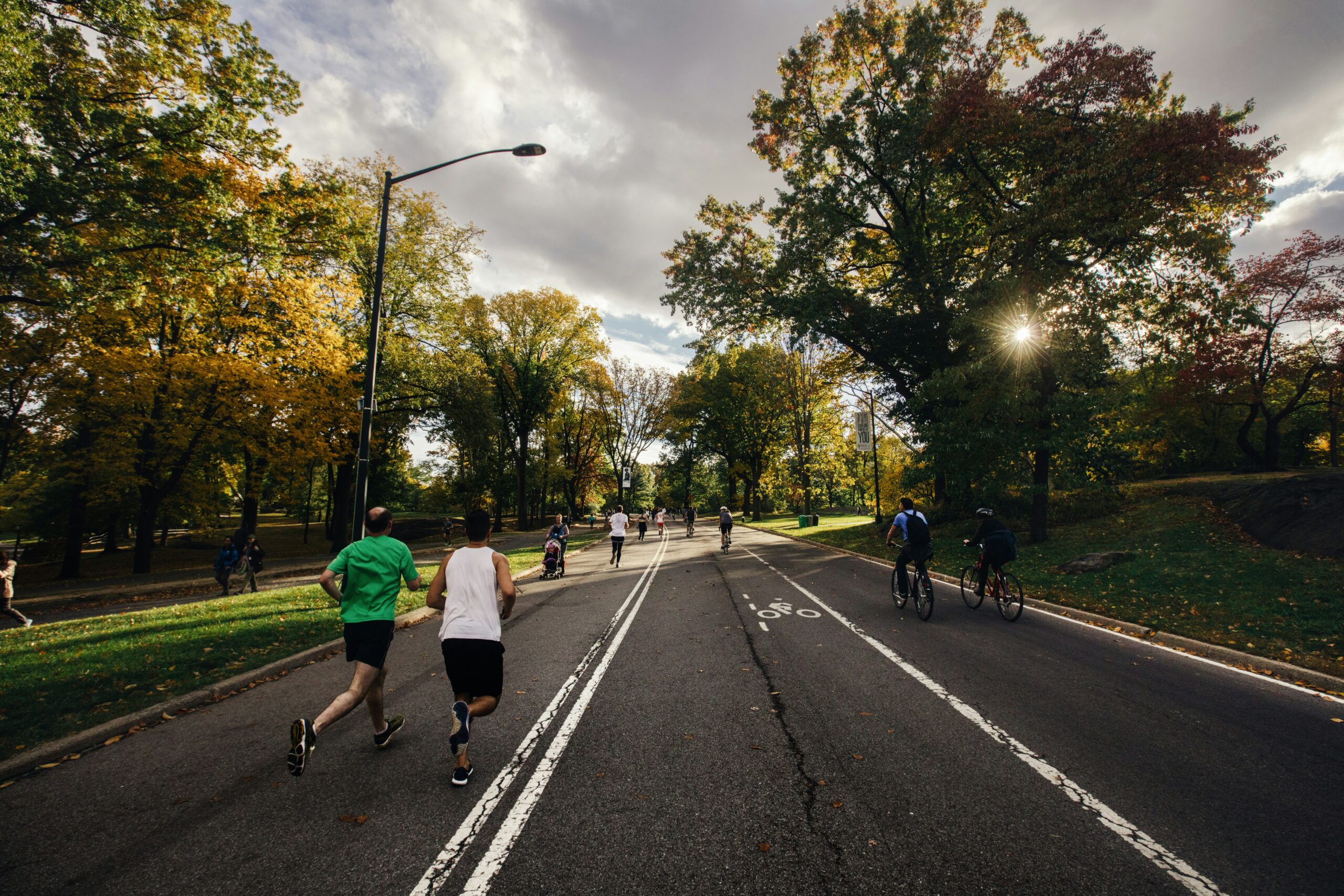
In my work as a therapist, I often encounter clients who, after consulting with doctors, therapists, or psychiatrists, learn about the benefits of medication in managing conditions like stress, depression, ADHD, PTSD, and memory loss. While medication can be a crucial part of treatment, it’s important to recognize that it is only one piece of the puzzle in achieving overall well-being.
A truly balanced life involves a deeper commitment to the mind-body-soul connection. This interconnected approach highlights how exercise not only benefits our physical health but also plays a vital role in our mental and emotional well-being. By embracing this holistic methodology, we can unlock the full potential of exercise to enhance our mental health and lead healthier, more fulfilling lives.
In previous discussions, we’ve explored how meditation serves as a bridge to our inner self, fostering a deeper understanding of our minds and bodies. We’ve also delved into the benefits of exercise, emphasizing its role in strengthening the connection between mind, body, and soul. This week, we’ll continue to build on these themes, reinforcing the importance of a holistic approach to mental health. To read more on this topic follow the link Read More. But now let’s focus on how exercise connects to both our mental health and overall health.
Mental Health Benefits of Exercise and Depression:
 322 million people suffer from depression worldwide. Depression is a combination of feeling low, moody, and sad for extended periods. It impacts our physical and mental health tremendously. Negative thoughts feed depression, exercise helps us focus on other things that are not our negative thoughts, it works as a distraction. Exercise has been proven to help people improve their self-esteem and self-worth. Exercise helps create and promote feelings of calm and well-being. When we exercise our brain releases endorphins also known as the happy hormone. This happy hormone helps us feel better and happier. To learn more about happy hormones follow the link Read More. Generally speaking, all that is needed is 30 minutes of walking or jogging 3 to 4 times a week, and most people see an improvement in depressive feelings within 8 weeks.
322 million people suffer from depression worldwide. Depression is a combination of feeling low, moody, and sad for extended periods. It impacts our physical and mental health tremendously. Negative thoughts feed depression, exercise helps us focus on other things that are not our negative thoughts, it works as a distraction. Exercise has been proven to help people improve their self-esteem and self-worth. Exercise helps create and promote feelings of calm and well-being. When we exercise our brain releases endorphins also known as the happy hormone. This happy hormone helps us feel better and happier. To learn more about happy hormones follow the link Read More. Generally speaking, all that is needed is 30 minutes of walking or jogging 3 to 4 times a week, and most people see an improvement in depressive feelings within 8 weeks.
Exercises to Consider:
- Biking
- Dancing
- Gardening
- Golf
- Jogging
- Tennis
- Walking
- Yoga
- Swimming
 Mental Health Benefits of Exercise and Anxiety:
Mental Health Benefits of Exercise and Anxiety:
40 million people in the United States experience anxiety disorders every year. Anxiety disorders can develop from a wide range of risk factors which can include genetics, brain chemistry, personality, and major or minor life events. This diagnosis can impact the way we think, feel, and behave. It can also impact the way we physically feel. Anxiety can include a racing mind, persistent negative thoughts over and over again, sleepless nights, and sweaty palms. Exercise helps distract you from the very thing you may be feeling anxious about. When our muscles become tense it leads to anxiety and exercise helps our muscles relieve tension. When we exercise our heart rate increases which has been proven to help develop anti-anxiety neurochemicals such as serotonin, Exercise has also been shown to activate the frontal lobe region of the brain, which is where all of our sensations and thoughts come  together, which helps control our amygdala which is the hub of fear and anxiety.
together, which helps control our amygdala which is the hub of fear and anxiety.
Exercises to Consider:
- Bike Ride
- Dance Class
- Brisk Walk
- Light Jog
 Mental Health Benefits of Exercise and Stress:
Mental Health Benefits of Exercise and Stress:
Stress can be defined as a feeling of emotional or physical tension, typically arising from demands, challenges, or perceived threats. When the body encounters these pressures, it instinctively attempts to protect itself. Consequently, stress can originate from any event that makes us feel frustrated, angry, or nervous. In response to stress, our bodies release hormones, which, in turn, make our brain more alert. This heightened alertness causes our muscles to tense up and our pulse to increase. However, when stress continues over time, it can lead to serious health conditions such as heart disease, high blood pressure, diabetes, depression, and anxiety. On the other hand, exercise plays a crucial role in mitigating these effects by increasing the brain’s ability to produce endorphins, often referred to as the “happy hormone.” Moreover, physical activity helps relax our muscles and relieves tension throughout the body, further reducing the harmful impact of stress.
Exercises to Consider:
- Biking
- Dancing
- Walking/ Jogging
- Swimming
- Tennis
 Mental Health Benefits of Exercise and ADHD:
Mental Health Benefits of Exercise and ADHD:
ADHD is one of the most common mental health disorders impacting children and adults. ADHD symptoms include inattention, hyperactivity, and impulsivity. As we have stated, exercise helps improve our focus, concentration, and mood. Through physical activity, our brains produce more dopamine, norepinephrine, and serotonin levels which all affect focus and attention. If your child is very fidgety and has ADHD it means they have an overactive cerebellum. Exercise and physical activity help ease stress and anxiety, improve impulse control, reduce compulsive behaviors, and improve executive functioning.
Exercises to Consider:
- Ice skating
- Skateboarding
- Martial Arts
- Rock Climbing
- Mountain Biking
 Mental Health Benefits of Exercise and PTSD/Trauma:
Mental Health Benefits of Exercise and PTSD/Trauma:
PTSD can develop after exposure to life-threatening situations and highly distressing events. Some of these events can include natural disasters, serious accidents, traumatic events, terrorist acts, war/combat, and violent personal assaults. People who suffer from PTSD have higher rates of diabetes, obesity, and metabolic syndrome. It is through repetitive, focused movements that we develop coping skills to better deal with PTSD. PTSD can lead to anxiety and depression which exercise has been proven to help improve. To learn more PTSD click the link Read More.
Exercises to Consider:
- Sports
- Aerobic Movements
- Resistance Training
- Yoga
- Dance
- Hiking
- Sailing
- Skiing
 Mental Health Benefits of Exercise and Memory:
Mental Health Benefits of Exercise and Memory:
As a therapist, I often emphasize the profound impact that physical exercise can have on mental health. Research consistently shows that exercises that elevate your heart rate and get you sweating can actually increase the size of the hippocampus, the part of the brain vital for memory and learning. Moreover, exercise plays a key role in supporting cognitive function and memory by boosting mood and improving sleep quality. It also enhances executive functioning, which includes critical skills like planning, working memory, attention, problem-solving, and verbal reasoning. By making regular physical activity a part of your routine, you can significantly benefit both your body and mind. The positive effects of exercise extend well beyond physical fitness, contributing to overall mental well-being and resilience.
Exercises to Consider:
- Thai Chi
- Martial Arts
- Dance
- Yoga
- Walking
- Biking
- Jogging
- Swimming
 Mental Health Benefits of Exercise and Diabetes:
Mental Health Benefits of Exercise and Diabetes:
As a therapist, I often witness firsthand the profound impact that chronic conditions like type 2 diabetes have on both physical and mental well-being. In the U.S., more than 34 million people are living with diabetes, and notably, the vast majority—90-95%—are affected by type 2 diabetes. This chronic condition disrupts the body’s ability to regulate and use sugar effectively, leading to significant health challenges. While there is currently no cure for type 2 diabetes, it is essential to adopt healthy habits such as balanced eating, regular exercise, and weight management. These habits can greatly enhance your ability to manage the condition. Specifically, exercise is crucial not only for controlling blood sugar levels but also for improving insulin secretion and sensitivity. These benefits are particularly important in preventing the progression from pre-diabetes to diabetes, thereby underscoring the importance of incorporating physical activity into your daily routine.
Exercises to Consider:
- 20-25 minutes of physical activity per day
- 2 or more days of exercises that include all major muscle groups
- Walking
- Mowing the lawn
- Dancing
- Swimming
- Playing sports
 Mental Health Benefits of Exercise and Blood Pressure Management:
Mental Health Benefits of Exercise and Blood Pressure Management:
High blood pressure, also known as hypertension, occurs when the force of your blood pushing against the walls of your blood vessels is excessively high. Regular aerobic exercises have been found to lower the blood pressure of those who suffer from hypertension. To learn about the benefits of aerobic workouts follow the link Read More. In the US, 1 in 3 Americans suffers from Hypertension. Hypertension can lead to stroke, loss of vision, heart failure or heart attack, sexual dysfunction, or kidney disease or failure.
Exercises to Consider:
- Walking
- Jogging
- Cycling
- Swimming
- Dancing
- High-intensity interval training
- Strength training
Can exercise be a drag? Yes. Is exercise something that everyone should love? No. Is exercise something that everyone can benefit from? Yes. Often the hardest part of starting an exercise routine is getting started. Exercise has tremendous benefits on many levels. For instance, it can help us better manage our weight while also improving our self-esteem and self-image. More importantly, it can enhance our focus and help us battle diseases. Therefore, it is generally best to consult your doctor before starting an exercise routine to determine what is best for you. Some simple tips to help get started are to find an activity that you enjoy doing, get good sleep, and find a workout buddy to help motivate you.
Explore Our Services at Bright Idea Counseling:
At Bright Idea Counseling, we offer a wide range of therapy services tailored to meet your unique needs. From individual and family therapy to specialized programs for stress management and mental health, our experienced team is here to support you every step of the way.
To learn more about how we can help you and your loved ones, click the link below.
Discover the Support Your Family Deserves
At Bright Idea Counseling, we understand that every family faces unique challenges and stresses. Whether you’re navigating the ups and downs of daily life or encountering more complex issues, our dedicated team is here to help.
Don’t face these challenges alone. Reach out to us today to learn more about our personalized therapy services and see how we can support your family’s journey toward well-being and harmony. Contact us now to schedule a consultation and take the first step towards a brighter tomorrow with Bright Idea Counseling.


 Mental Health Benefits of Exercise and Stress:
Mental Health Benefits of Exercise and Stress: Mental Health Benefits of Exercise and Memory:
Mental Health Benefits of Exercise and Memory:
